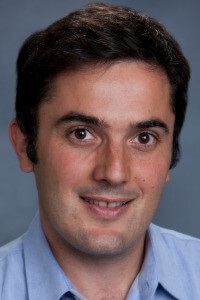“Ma misi me per l’alto mare aperto” “But I put forth on the high open sea” Ulysses: when Dante sang the stature of man
By Ilaria Ariemme, Pietro Bocchia, Stefano Braschi, Carlo Carù, Irene Coerezza, Alberto De Simoni, Carmine Di Martino, Daniele Ferrari, Gabriele Grava, Simone Invernizzi, Tommaso Montorfano, Michele Orfano, Pietro Pellegatta, Benedetta Quadrio, Carlo Sacconaghi, Luca Tizzano, Paolo Torri.
Dante’s Ulysses is an unsurpassed image of the greatness of man, of his irrepressible impulse to penetrate the deepest essense of things, the source of our being. The “daring” that drives him to take to the sea to experience “the vices and human valor” is the cypher of the character, his truest nature. As written by Mario Fubini, it is “an innate human impulse” which drives Ulysses to “confront the most arduous and dangerous exploits”, to attempt the crossing of the mysterious and unbounded ocean of meaning. Thus, with oars metaforically transformed into wings, his craft “takes flight”, leaving behind him the Pillars of Hercules. It is the same “flight” which Dante shall fulfill throughout the Commedia, and in particular in the Paradiso, to reach as far as God.
Not infrequently, however, Dante’s Ulysses has been looked upon with suspicion. Many critics considered him to be just a superb deceiver: a novel Lucifer, wanting more than he deserved, he took one step too far and dared to passed the sign and dared to be like God.
The reproach to Ulysses expressed by Petrarch soon after the Commedia: “…he who sought to see too much of the world” (The Triumph of Fame, II,18), reveals an attitude which our culture has widely adopted: suspect this boundless aspiration of the heart, stigmatize its excesses, or empty it of its real content. Thus we preclude our understanding of Dante’s Ulysses, because we ignore the true spark of human motivation.
But the Ulysses experience is not an arrogant exaggeration of human aspiration: it is human aspiration itself, in its original and binding scope. To contain or contrast it, or worse still, condemn it, would be an assassination of the human spirit. It is no coincidence, then, that it was to this figure that both Primo Levi and Osip Mandel’štam turned their thoughts just at those times when suffering respectively nazi violence and Stalin’s persecution (it “concerns all men in anguish, and ourselves in particular”; Primo Levi, Se questo è un uomo / If This is a Man), (“This canto is on the substance of human blood, which embodies in itself the salt of the ocean”; Osip Mandelshtam, Conversation about Dante). From places designed for the destruction of human dignity, both recognized Ulysses as the truest symbol of the infinite value of every human being, what makes him ultimately irreducible, despite all the evil that may be done to him.
Who are we in front of the Pillars of Hercules, in front of what can can be seen and touched; before the reality and limits set by existance to the aspiration to penetrate the unknown, in the ocean of meaning? Ulysses or the spirit of a positivistic evaluation? “But he, Ulysses, precisely because of the same ‘stature’ that had driven him all over the Mare Nostrum, felt not only that the Pillars of Hercules were not the end, but they were, in fact, the moment of the unleashing of his true nature. And so he smashed to smithereens this wisdom and went on”. (L. Giussani, The religious sense, p. 133).
Thus this Ulysses continues yet today to scandalise the wise and the well-maning while giving breath to those lovers of the greatness and nobility of man.





